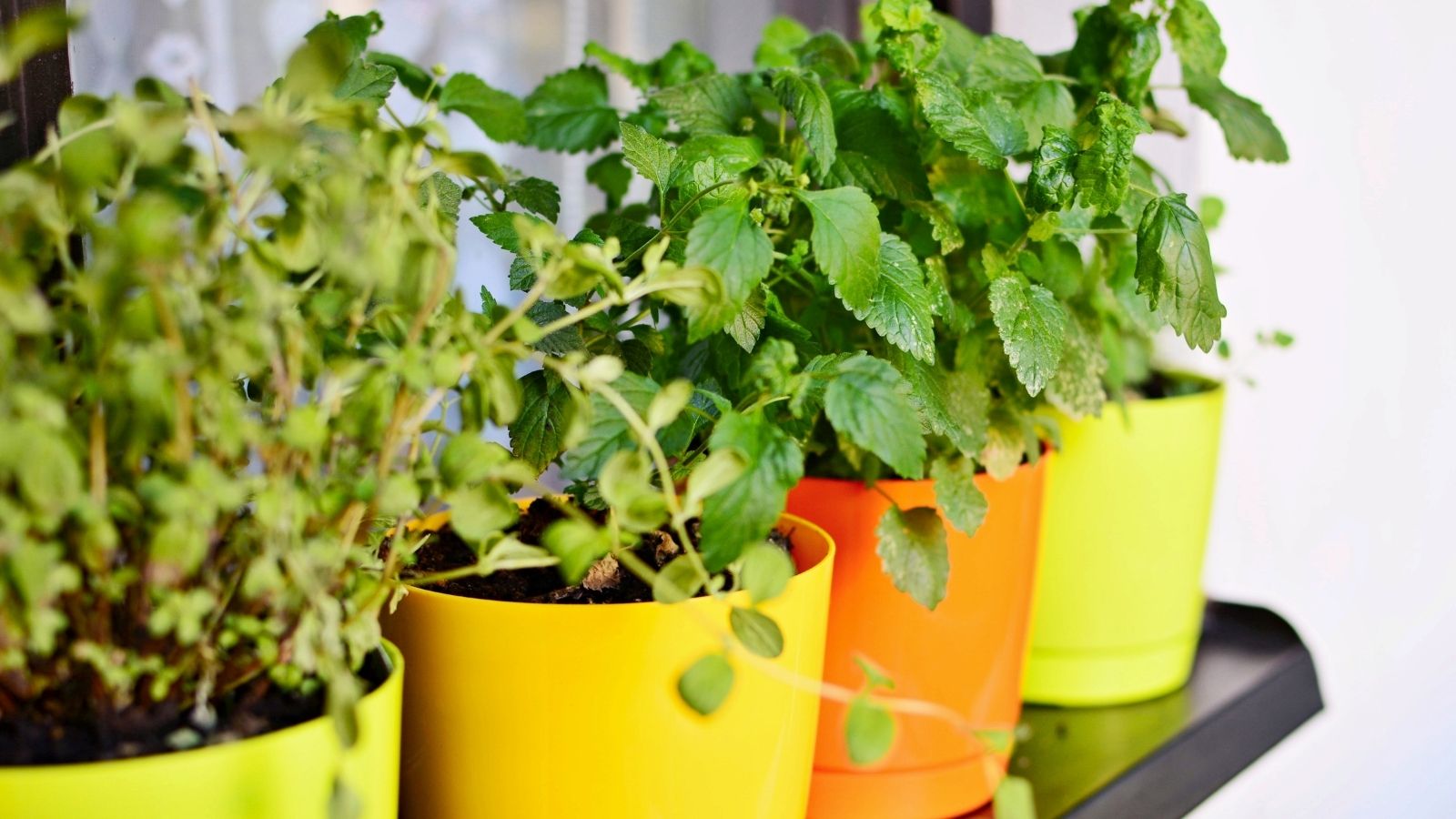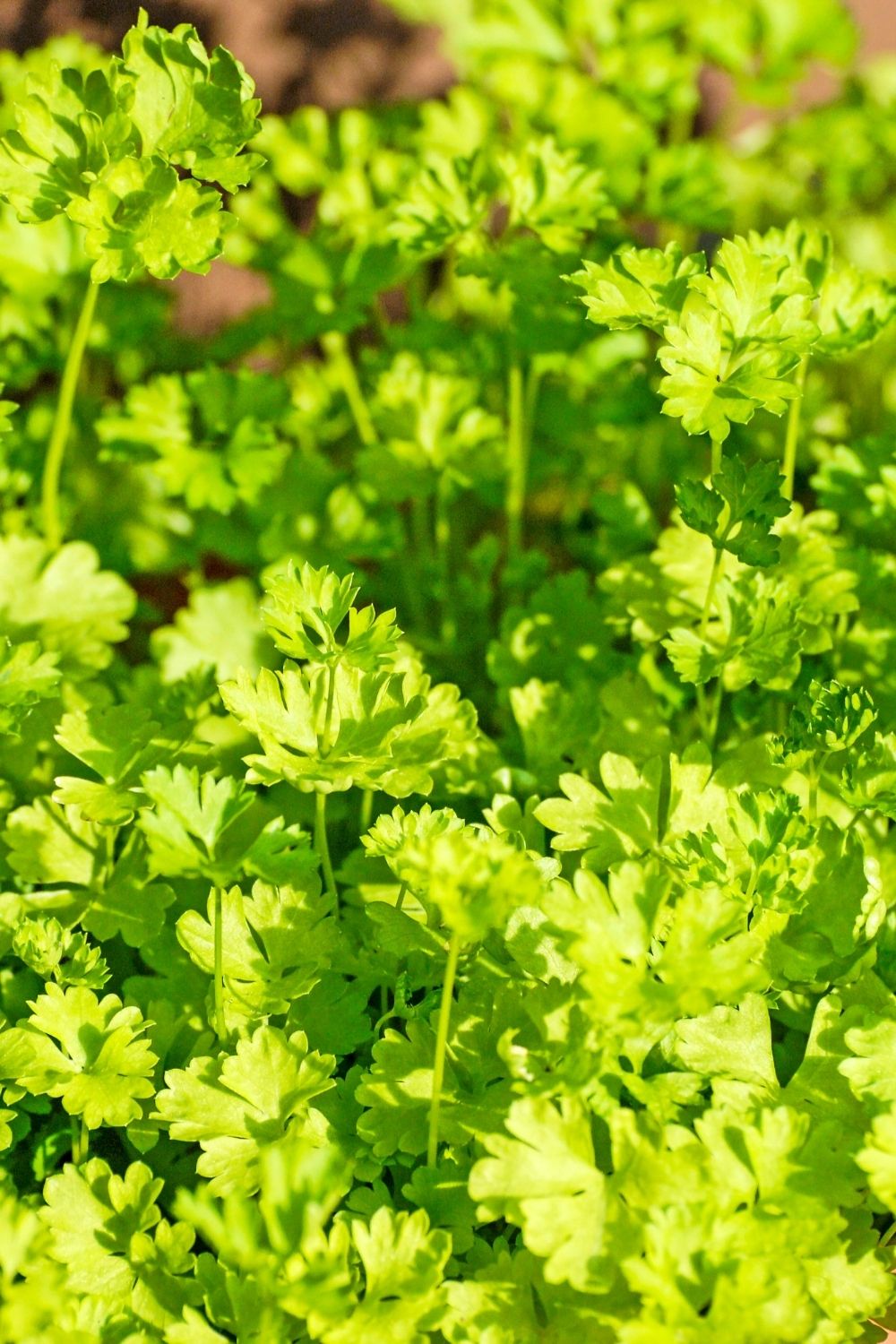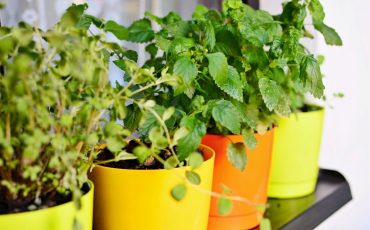Imagine having a sandwich and craving for some fresh herbs!! Well, you can easily pick some up from the plant by your kitchen isle. Yes!!, you read it correct. There are many delicious herbs that you can grow indoors in shady areas. With the increasing adulteration in external world, it is always better to grow your own food. So today we will help you choose utterly delicious and healthy herbs that grow in shade. These herbs can be easily grown indoors. So, you can save your pocket and your health while enjoying your salad.

List of delicious and healthy herbs that grow in shade
Most of us are concerned with the low light we have in our indoor garden. Well, to help you all we are going to list down delicious and healthy herbs that can easily grow in low light. For these herbs, you do not need to install huge sets of artificial lights.
Mint is one of the most popular herbs that grow in shade
Mint is like the herb that makes every meal complete. So, it is very common and useful to have your own mint plant. You can easily grow your mint plant in your kitchen in shade. Mint grows very fast and very easily. You should grow your mint in a separate plant, or else they may eat up other plants’ space. So, go ahead and grow you mint herb in shade. You can add mint to your tea or your salad, to make every meal special.
Chervil is one of the most delicious and healthy herbs that grow in shade
We all love to have fresh chervil, be that in our salad or while preparing our herbal sauce. So, to have fresh chervil, you can easily grow them at your home. Chervil grows easily in shade with little care and maintenance. Chervil plant has a very attractive, green foliage which will make your indoor garden aesthetically beautiful too. So, if you are looking for herbs that grow in shade, then chervil is a must have.
Chives is one of the easiest of all the herbs that grow in shade
Chives is an integral part of our kitchen. This herb with onion like flavor grows easily and pretty fast. This herb can be harvested through out the growing season. Whenever you feel the need you can chop of the stem as required. New stems grow easily and continuously all season long. So, now you can easily add fresh chives to your plate easily.
Parsley’s both variants are herbs that grow in shade
Yes!! Parsley comes in two variants and both of them can be grown in shade. The two variants are flat-leaved and curly type. Both of these can be sown in the form of seeds in spring or autumn. You need to take care to protect them from frosts. These grow easily in shade with minimum care and time requirement. So, if you wish to add freshness to your soup, parsley is one of the must have herbs that grow in shade.

Coriander is one of the most useful herbs that grow in shade
Coriander is actually one of the most useful herbs. Starting from its flowers to its seeds, everything is edible. It is said to have medicinal benefits too. It is an annual herb. It is one of the fastest growing herbs too. You can add coriander to your Indian cuisine or to your curries, burritos if you want to spice up your taste buds. So, if you are building your own vegetable garden, coriander is a must have herb that grows in shade.
Sorrel is one of the perennial herbs that grow in shade
All of us love to have that pinch of sorrel leaves in our salads, soups and sauces. Sorrel leaves add the refreshing sour taste. This perennial herb is thus a must have for our homes. You can easily grow it indoors in shade.
Basic requirements for herbs that grow in shade: –
1) Save your herbs from pests: –
Herbs being very tender and delicate plants can easily get prone to insects and pests. Keep regular pruning sessions to cut down such attacks of aphids. You can use organic techniques to take care of these as well. Likewise, you can use neem oil or can also spray rotten rice water at the roots of the plants. Spider mites are also very harmful pests. To treat this use horticultural oil.
2) Adequate amount of fertilizer is very important to grow healthy herbs: –
When you have herbs that grow in shade, they usually tend to be leggy. So, if you feed them excess amount of fertilizer, it may make them far weaker. So, you need to limit the amount of fertilizers you use.

